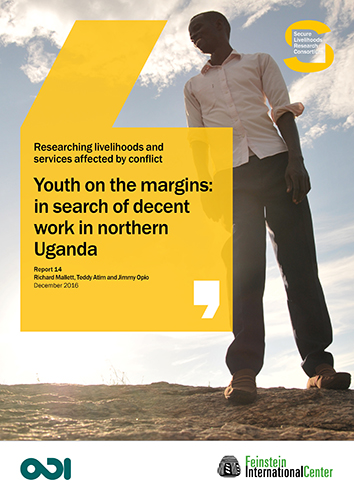Just because someone is working, it does not automatically mean they are doing well. More than one-third of all Ugandans are classified as ‘working poor,’ and that share is concentrated disproportionately among young people. Bad work, forms of labor that are precarious, underpaid, and exploitative, are common.
Through a case study in Uganda’s second largest town, Lira, the research sets out to examine what the dynamics of young people’s work look like. It does so through a small-scale survey and in-depth interviews with several hundred young people. Of the young people surveyed, around half fall below the Ugandan national poverty line.
The research shows that several themes recur in the working lives of young people: low and irregular pay, insecure terms, transient, socially undesirable. Working for someone else can expose young people to a range of exploitations, from the economic to the physical to the sexual.
What also characterizes life in these low-return corners of the labor markets is the degree to which young people appear to be stuck there. There are few viable alternatives, and adverse incorporation, where individuals who are not faring well in the workplace are somehow prevented from moving onwards (and upwards), is also rife.
The Secure Livelihoods Research Consortium (SLRC) is a six-year, eight-country research study, led by the Overseas Development Institute (ODI) in London. SLRC investigates livelihoods, access to basic services, and social protection in fragile and conflict-affected situations. The research is funded by the UK Department for International Development (DfID), Irish Aid, and the European Community (EC). The Feinstein International Center leads SLRC research in South Sudan and Uganda in addition to its participation in the Sierra Leone research.







